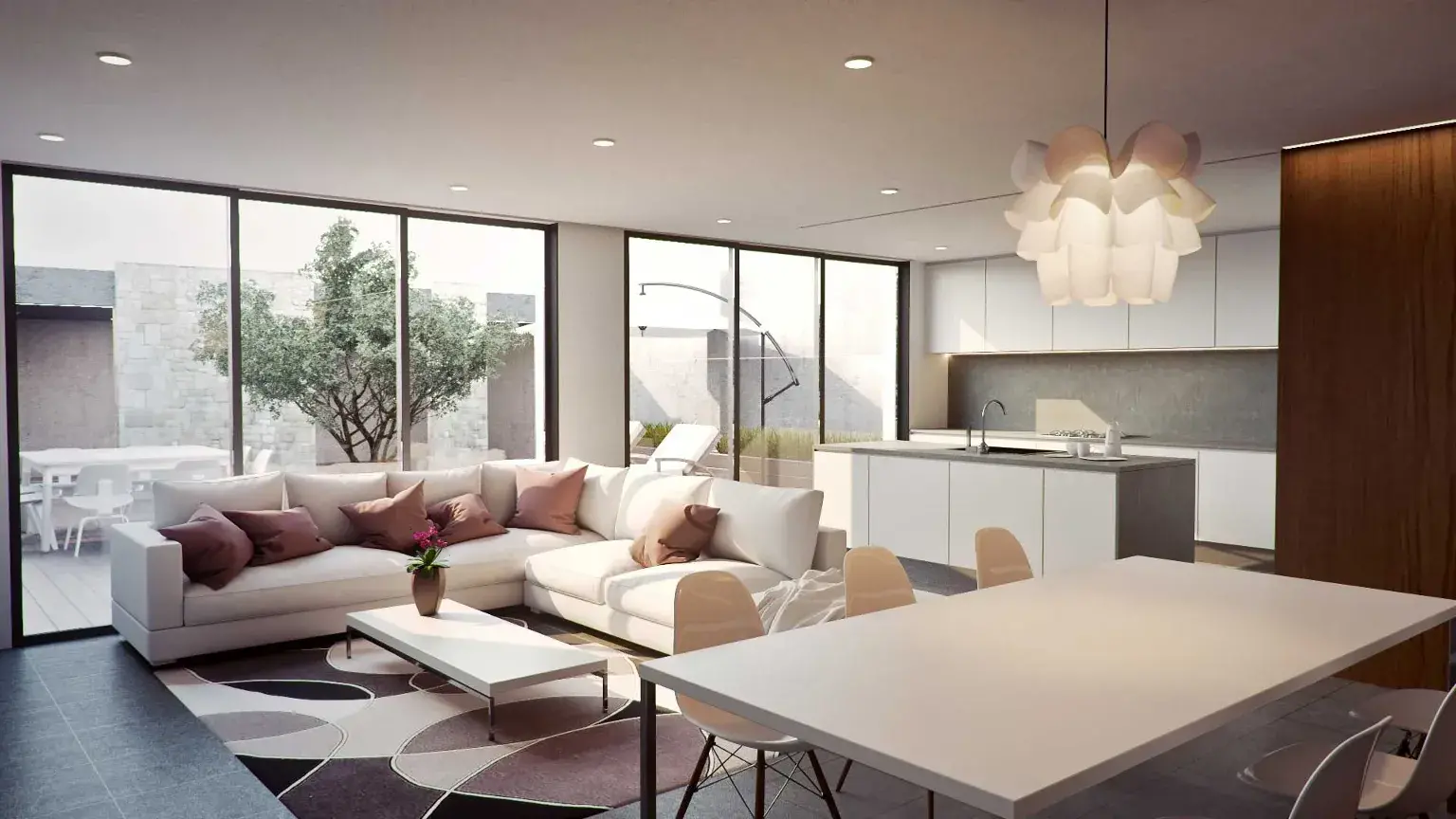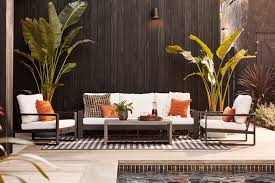What is the most durable material for outdoor furniture? Metal. Metal is typically the strongest and most durable material for outdoor garden furniture. Because of its strength, metallic frames can be thinner and shaped into more complex designs than other options, giving manufacturers greater style flexibility.
What’s best material for outdoor furniture? Synthetic resin is one of the best materials for outside furniture. Always purchase High Density Polyethylene (HDPE) Wicker and not cheap PVC wickers. PVC synthetics will unravel, become brittle, and crack. HDPE is a much higher grade of material.
What type of patio furniture is the most weather resistant? Galvanized or stainless steel are the best options for outdoor furniture, as regular steel rusts and corrodes very easily when exposed to outside elements.
Is aluminum or rattan better for outdoor furniture? Ultimately, both aluminum and resin wicker outdoor furniture are more resilient than their predecessors. Resin wicker tends to offer a little more in the way of comfort, and aluminum a little more all-weather durability, but both are easy to clean, lightweight, and stylish.
What is the most durable material for outdoor furniture? – Additional Questions
What patio furniture does not rust?
Cast aluminum won’t corrode, rust or fade, so you can enjoy your furniture outdoors all year long.
- Steel. Solid steel is what makes those pretty petite bistro tables and chairs so stable.
- Wrought Iron. Wrought iron is, quite simply, timeless.
- Teak.
- Eucalyptus.
- All-Weather Rattan.
What is the best material for outdoor furniture at the beach?
Teak Wood. If you’re wondering, what is the best material for outdoor furniture at the beach when it comes to wood, teak is an excellent choice. This durable material resists sunlight and has a classic, beachy aesthetic.
What’s the difference between rattan and wicker?
“The difference is that rattan is a material, whereas wicker is the style and method of weaving,” Zoe explains. “Wicker can be woven from rattan as well as many other natural or synthetic materials, which is where the confusion often lies.”
Is iron or steel better for outdoor furniture?
Steel doesn’t dent or get bent out of shape as easily as some aluminum furnishings can. Lighter than wrought iron but heavier than aluminum, steel provides strength, stability, and endurance in extreme temperatures. Powder-coated finishes protect against rust and corrosion.
Is rattan a metal?
Rattan is the most common organic fiber used to make wicker. Pliable and easy to work with, this fiber comes from palm stems. Manufacturers also often use synthetics like vinyl and resin for outdoor wicker furniture over an aluminum frame for added reinforcement.
How long does resin furniture last?
Resin wicker, typically used to make patio or deck furniture, is durable, fade-resistant and easy to maintain. The best resin wicker patio furniture is made from high-density polyethylene and should last 10 to 15 years with normal use.
Is wicker better than resin?
Resin wicker or rattan is the answer to the outdoor dilemma. It is crafted from polyethylene fibers and can withstand the elements much better than natural rattan wicker. This material comes in a wide variety of colors and various weaves.
Can resin furniture be left outside?
Polyethylene resin wicker is resistant to the effects of UV rays, water and snow, making it a great example of patio furniture that can be left outside during the winter.
Does resin wicker attract bugs?
Yes, wicker does attract other bugs, and for the same reasons that spiders love it. Its woven structure creates perfect little hiding holes for critters to nestle in; and because those nooks are hard to clean, bugs can stay there safely.
How do you keep outdoor furniture bug free?
Tips for creating a pest-free patio
- A clean patio is a pest-free patio.
- Refresh your lighting.
- Plant a few herbs.
- Burn citronella torches.
- Spray essential oils in the space.
- Grow pest-deterrent flowers.
- Break out the mouthwash.
- Use hydrogen peroxide.
What is the difference between wicker and resin wicker?
Natural wicker may fade in the sun and get wet during rain, being permeable may cause the fabric to give in, on the seating area. Natural wicker is best used indoors. Synthetic wicker is infused with UV Inhibitors that prevent fading in the sun. Synthetic wicker won’t break, chip, or scratch and it’s stain resistant.
How do I keep bugs and spiders off my patio furniture?
3 Ways to Keep Spiders Out of Your Patio Furniture
- Get Rid of Hiding Spots and Crevices. Make your furniture as uninviting as possible for pests by having very few places for them to hide.
- Vacuum and Brush Your Furniture.
- Get removable and washable cushion covers.
How can I make my patio spider free?
How to Keep Spiders Away from Your Patio
- 1 Spray chestnut or mint essential oils in problem areas.
- 2 Spread diatomaceous earth around your patio.
- 3 Set out some hedge apples.
- 4 Knock down spiderwebs when you see them.
- 5 Destroy any egg sacs you find.
- 6 Move any clutter off your patio.
- 7 Turn off your outdoor lights.
What is the best spider deterrent?
What scents will deter spiders?
- Peppermint: Plant mint around the exterior of your home, especially under windows.
- Cinnamon, tea tree, lavender, rose, eucalyptus, and peppermint essential oils: Add 20 drops of any of these oils to water in a spray bottle, and spritz it around the house where you see spiders.
Can you spray patio furniture with bug spray?
For something a little stronger, and more targeted, than candles a bug free patio spray is the way to go. It’s perfect for spritzing on furniture, pillows, decks and plants when you need added protection but don’t want your skin and clothes drenched in bug spray.
What plant makes mosquitoes go away?
Citronella Grass (Lemon Grass)
Known for its distinct smell, citronella grass (or lemon grass) is the most commonly used natural ingredient in mosquito repellants. In fact, the Brooklyn Botanic Garden recommends lemon-scented plants such as citronella grass to keep mosquitoes at bay.
Does vinegar keep bugs away?
Acetic acid makes vinegar an excellent tool for pest control, repelling some of the most common backyard nuisances and even killing weaker insects. It’s most effective against ants, spiders, and mosquitos. You can keep spiders from entering your home by spraying vinegar around your property’s perimeter and entryways.




